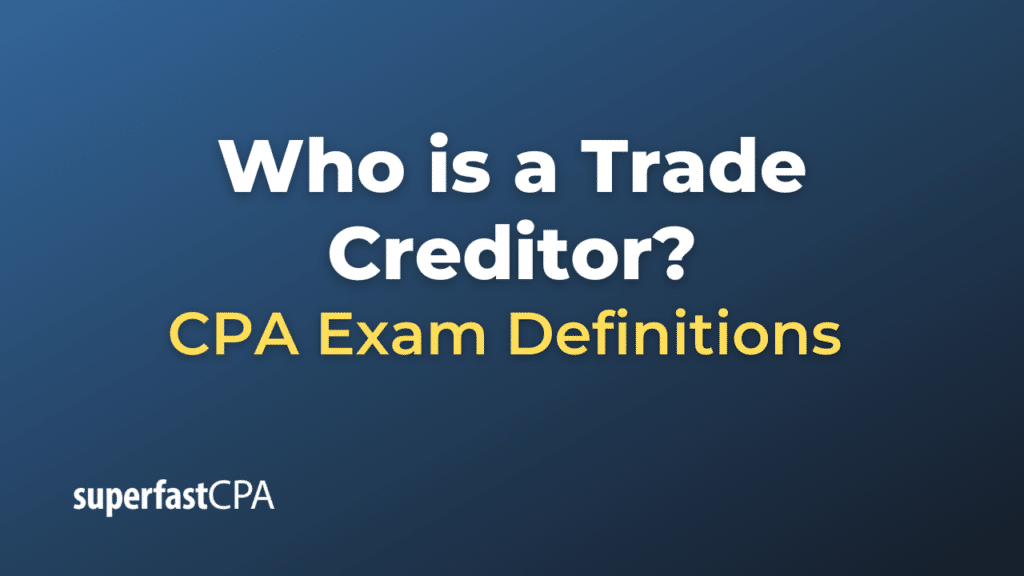Trade Creditor
A trade creditor is an entity (usually a business or supplier) that has provided goods or services to another business on credit, awaiting payment within an agreed-upon time frame. This means that the recipient of the goods or services has not paid immediately upon delivery or completion but has been given a specific period (like 30, 60, or 90 days) to make the payment.
In financial statements, amounts owed to trade creditors can be found under “accounts payable” or “trade payables” in the current liabilities section of the balance sheet.
For example, if a company orders raw materials from a supplier and receives the materials with an invoice that allows payment within 30 days, the supplier becomes a trade creditor for that company until the invoice is paid.
Trade creditors are distinct from other types of creditors such as bank lenders or bondholders, who lend money. Trade creditors extend credit as a routine part of their business operations to facilitate sales and maintain a good business relationship with their customers.
Example of a Trade Creditor
Let’s delve into a practical example of a trade creditor:
Scenario:
“FreshBake Bakery” is a popular local bakery known for its delicious pastries and cakes. To make their products, they frequently need to purchase ingredients like flour, sugar, butter, and other baking essentials.
One day, FreshBake places a large order of baking ingredients from a supplier named “BakeSupply Co.” The order includes 50 bags of flour, 25 bags of sugar, 20 tubs of butter, and other items.
Upon delivery, BakeSupply Co. provides FreshBake with an invoice for the total amount of the ingredients. The invoice indicates a “Net 60” term, meaning FreshBake has 60 days from the date of the invoice to make the payment.
In this scenario:
- Trade creditor: BakeSupply Co. (because they provided goods to FreshBake on credit)
- Debtor: FreshBake Bakery (because they owe money to BakeSupply Co. for the delivered goods)
If FreshBake fails to pay within 60 days, they might incur late fees or interest, depending on the terms set by BakeSupply Co. On the other hand, if FreshBake pays within the stipulated period, they can benefit from having used the ingredients (perhaps even selling products made from them) without having paid upfront, aiding their cash flow management.
In this example, BakeSupply Co. is the trade creditor because they extended credit to FreshBake Bakery by allowing them to pay for the goods at a later date. FreshBake, in turn, is obligated to pay the amount due within the time frame indicated on the invoice. This dynamic is a common practice in many B2B transactions to facilitate operations and maintain smooth business relationships.













